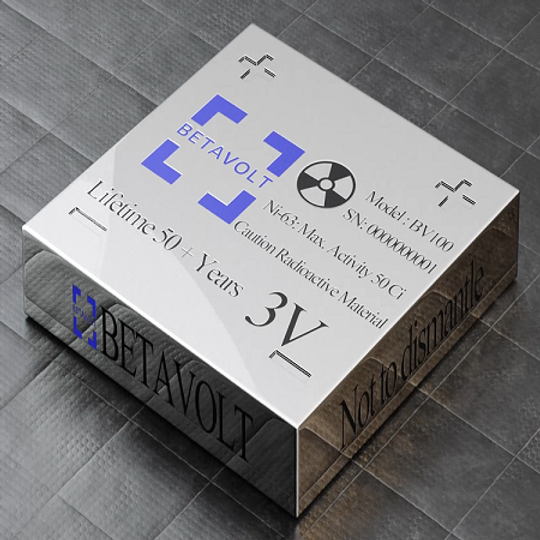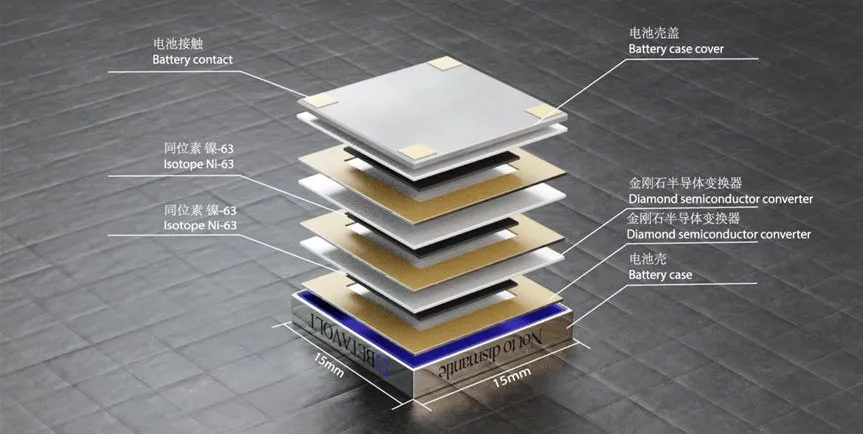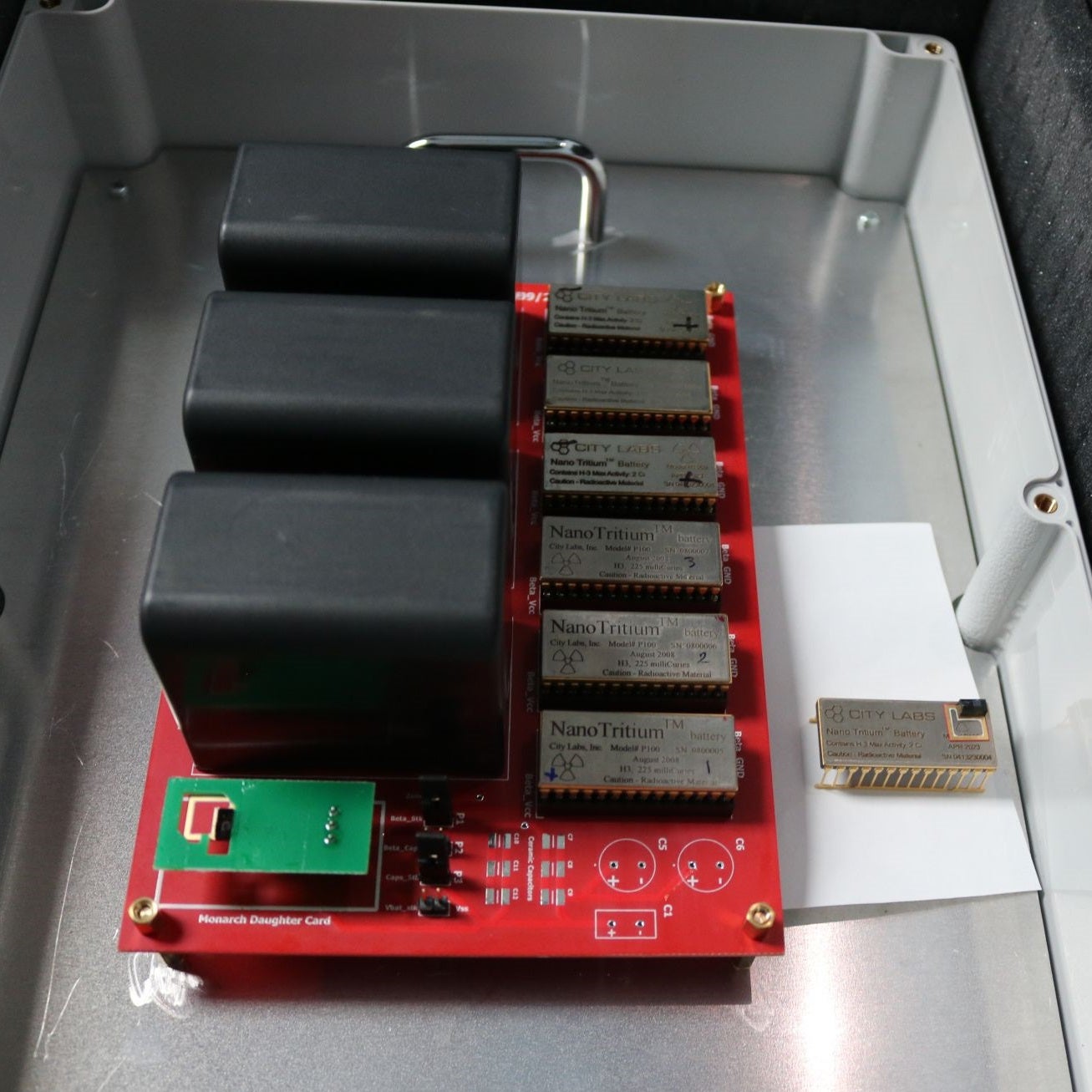Beijing-based startup Betavolt has unveiled a cutting-edge nuclear battery that promises to deliver continuous electricity for up to 50 years without requiring recharging or maintenance. This breakthrough represents a significant step forward in energy storage technology.
By achieving the miniaturization of atomic energy, Betavolt has managed to integrate the isotope Nickel-63 into a module smaller than a coin. This compact design paves the way for revolutionary applications in various industries.
As the first of its kind globally, Betavolt’s nuclear battery has advanced to the pilot testing phase and is on track for mass production. Potential uses range from powering smartphones to enabling long-lasting energy solutions for drones and other devices.

The company envisions its Betavolt atomic energy batteries as a solution to long-lasting power supply needs in diverse scenarios such as aerospace, AI equipment, medical devices, microprocessors, advanced sensors, small drones, and micro-robots.
In a press release, Betavolt expressed its anticipation that this groundbreaking energy innovation would bolster China’s position in the ongoing AI technological revolution. The nuclear battery operates by harnessing the energy generated through the decay of the isotope, a concept initially explored in the 20th century.
While scientists in the Soviet Union and the United States pioneered this technology for use in spacecraft, underwater systems, and remote scientific stations, the early iterations were both costly and cumbersome.
Related Stories
China has now embarked on the ambitious endeavor to miniaturize and commercialize nuclear batteries as part of its 14th Five-Year Plan, aimed at strengthening the nation’s economy from 2021 to 2025. Simultaneously, research institutions in the US and Europe are also actively engaged in the development of similar technologies.
Betavolt’s inaugural nuclear battery boasts the capability to deliver 100 microwatts of power with a voltage of 3V while measuring a mere 15x15x5 cubic millimeters.
However, the company has ambitious plans to produce a battery with 1 watt of power by the year 2025. Their compact size opens the door to a myriad of possibilities, including mobile phones that never require charging and drones with perpetual flight capabilities.

Furthermore, the layered design of Betavolt’s nuclear battery ensures safety. It is engineered to withstand sudden force without catching fire or exploding, providing added reassurance to potential users. The battery also demonstrates remarkable resilience, functioning efficiently in temperatures ranging from -60°C to 120°C.
Betavolt takes pride in highlighting the safety and environmental friendliness of its atomic energy batteries. The company emphasizes that these batteries have no external radiation and are well-suited for use in medical devices like pacemakers, artificial hearts, and cochlear implants within the human body.
Moreover, Betavolt underscores the environmental benefits of their technology. After the decay period, the isotope within the battery transform into a stable copper isotope, which is non-radioactive and poses no threat or pollution to the environment. This feature underscores the commitment to sustainability and eco-friendliness.
As China spearheads this transformative technology, the global community eagerly awaits the widespread commercial availability of Betavolt’s atomic energy batteries, offering a promising glimpse into the future of sustainable and long-lasting power solutions.
Betavolt competes directly with City Labs‘ batteries from the United States which held the previous standard in nuclear micro batteries. City Labs’ NanoTritium batteries are ultra-low-power, long-life betavoltaic devices that utilize the natural decay of tritium, a radioactive isotope of hydrogen, to generate continuous power for over 20 years. The first NanoTritium battery prototypes were developed in 2008 for encryption security memory backup power. They were released commercially in 2012 marking the first time tritium batteries could be purchased without requiring a radiation license.
batteries are ultra-low-power, long-life betavoltaic devices that utilize the natural decay of tritium, a radioactive isotope of hydrogen, to generate continuous power for over 20 years. The first NanoTritium battery prototypes were developed in 2008 for encryption security memory backup power. They were released commercially in 2012 marking the first time tritium batteries could be purchased without requiring a radiation license.
 batteries, making them the first betavoltaic power sources available to customers without requiring a radiation license.
batteries, making them the first betavoltaic power sources available to customers without requiring a radiation license.
Betavoltaic batteries are ideal for powering devices where battery replacement is difficult or impossible, such as:
These miniature nuclear batteries’ long operational life and compact size make them valuable for specialized uses, despite their limited power output compared to traditional batteries.
Note: Materials provided above by The Brighter Side of News. Content may be edited for style and length.
Like these kind of feel good stories? Get The Brighter Side of News’ newsletter.
The post Miniature nuclear battery generates 50 years of power on a single charge appeared first on The Brighter Side of News.